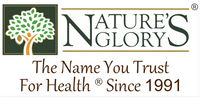Organic and all-natural soaps are a must for anyone looking to avoid the harsh artificial chemicals found in commercial soaps. Identifying a natural soap from an immense sea of skincare products is important. This guide will get you through the process of choosing the best natural soap for your skin.
The Truth About Commercial Soaps
The majority of cleansing products advertised as soaps are not soaps at all. They are artificial chemical detergents that contain synthetic fragrance oils, dyes, and harmful ingredients like triethanolamine, which can be detrimental to your eyes and lungs. Because of their highly toxic substances, these ingredients cause skin-related concerns like dry skin, eczema, and psoriasis.
Also, some self-claimed natural soap and shampoo makers use dimethicone. This silicon-based polymer traps bacteria and sebum under the skin. It, in turn, causes increased breakouts and prevents your skin from casting off dead skin cells.
On the other hand, all-natural soaps are made with natural ingredients and essential oils that do not damage your skin. They also have glycerine preserved in them, which makes them natural moisturisers.
There are three ways to make natural soaps: a) melt and pour, b) hot process, and c) cold process.
Melt & Pour
Melt and pour soap bases are the base of natural soap making. These soaps are made using melted pre-made soap chunks and added with natural ingredients. The biggest challenge with melt and pour bases is having no control over the ingredients in the pre-made soaps. It may be better than artificial soaps, but it is safer to identify the raw ingredients in the soap base first before considering this soap-making process.
Cold Process
This procedure is a much better way of making all-natural soaps. It is made by adding a lye solution to animal (like lard) or vegetable (like olive, coconut, castor bean, or palm oil) fats. After the lye has been mixed with fats, cold saponification begins. The lye (base) and fatty acids react to form soap. The mixture is discharged into a mold to cure for about 6 to 8 weeks. During this period, the soap is continuously saponifying.
Cold process soaps are very lathery and pleasant. The only drawback to this method is that the essential oils’ beneficial qualities and scent can be lost during saponification since it would generate a significant amount of heat. But ultimately, natural soaps made through the cold process are far superior to melt and pour bases and commercial soaps.
Hot Process
The hot process uses an external heat source to expedite the conversion into a gel, later poured into the mold. Essential oils are added after the majority of the heat is generated. Therefore, the oils retain their scent and beneficial qualities. The soap products of the hot process can deliver all the expected properties from natural ingredients.
The Ingredients To Look For
Besides ensuring that the soap was made using either of the processes, you need to check if the soap is made of all-natural ingredients. The main components should include vegetable oils, lye (sodium hydroxide), and essential oils. These three form the base of your natural soap.
Other natural additives act as natural colourants and naturally exfoliate too. They include:

